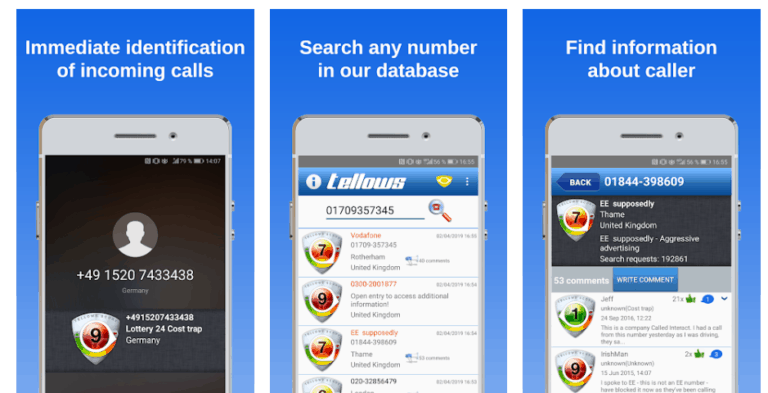Any links to online stores should be assumed to be affiliates. The company or PR agency provides all or most review samples. They have no control over my content, and I provide my honest opinion.
Cybercrime is alive and well, costing victims tens of thousands of dollars. The FBI’s Internet Crime Complaint Center (IC3) received a record 791,790 reports of online fraud in 2020, with a claimed loss of $4.1 billion—an average of over 2,100 per day at about $5,000 per victim.
Anyone can become a victim of cybercrime, but older people are particularly vulnerable. Of all online crime victims, above 40% are over the age of 50, according to the IC3. Regrettably, this category also has the highest number of victims who lose more than $100,000.
We know how important the internet is nowadays, and we don’t say to turn it off or disconnect yourself from the world, but we do want you to be safe while being on the internet. So stay alert and familiarize yourself with these common internet scams and the preventive measures you should take to avoid them.
List of Most Common Online scams
Copies of Government Websites
Numerous scammers use the government’s official websites – they create the exact copies of them. They demand a price to complete your application for renewing your documents, but if you pay the fee, your application will not be processed, and they will still keep your documents and data.
Scams involving charities and welfare
Charity scams are the types that prey on people’s emotions, which is unethical. Scams contain charitable motives such as animals in danger. The emails frequently include a description of why the matter is urgent and links to legitimate-looking websites.
Victims may offer scammers their debit or credit card details in addition to money.
Scams through Email
Scam emails are a popular sort of internet fraud. While it is true that practically any tale may be used to create a fraudulent offer, there are a few “tried and true” scams that appear to come up periodically throughout time, such as:
- Advance fee scams
- Fraudulent overpayments
- Scams involving work from home positions
The general strokes stay consistent, but the specifics of this form of online fraud alter with time. There are tools available to stay up to date with the ever-changing scams and methods to take to guard against them.
Email is a prevalent medium for many typical online scams because it’s so inexpensive and simple to implement. You’d think that scammers’ methods would have improved by now, yet many scam emails are still poorly worded and simple to recognize. Nonetheless, others are more clever, and individuals continue to lose a significant amount of money to email scams each year.
Services Scam
Service Scams are frequently directed at businesses with attached emails having an invoice for legitimate-sounding services. A warning message is used to convince the receiver that they must pay immediately.
Compensation swindle/Scam
Yes, believe it or not, this one regularly shows up in spam folders. The email claims that the sender is arranging compensation for fraud victims and that the receiver’s name is on a list of victims.
You only need to supply some personal information before you can begin earning your reward.
Health Scams
As people grow older, their health tends to decline, and the requirement for prescription medicine can become prohibitively expensive.
Countless internet pharmacies have come in to provide lower-than-average costs on medications and other healthcare products. The difficulty is that most of these sites do not adhere to the law or established standards. For example, the creator of Canada Drugs is on a Red list in the United States for selling counterfeit drugs, although the website remains operational.
Ransomware and Computer Virus Scams
Ransomware is a sort of virus in which an attacker encrypts your data and promises to decrypt them only in exchange for a price.
The 2017 WannaCry ransomware outbreak, which affected over 400,000 PCs, was one of the most well-known ransomware incidents. In the end, hackers received an estimated $140,000 in bitcoin in exchange for decrypting consumers’ hijacked data.
Backing up your files regularly will help protect you against ransomware.
Social Media Platforms Scams
With the rapid growth of social media platforms, it’s no wonder that it’s seen as an ideal habitat for fraudsters. Although many of the other scams on this list may potentially be carried out using social media, a few more specialized ones have developed.
With so many people on social media anxious for ‘likes’ and ‘follows,’ scammers have taken advantage by giving precisely that. InstLike, 2013 application, requested usernames and passwords in exchange for following and likes.
In reality, they merely collected the credentials of 100,000 individuals and enrolled them in a big social botnet. Essentially, the program fulfilled its promise but did so using the accounts of individuals who signed up.
Travel Scams
Many consumers consider buying airline tickets, hotel rooms, and even vacation packages online. Scammers are aware of this, and there has been an increase in the number of travel websites offering nonexistent tickets and holidays.
Travel is often expensive, which means big profits for crooks. Furthermore, travel is a complicated purchase since you often spend a lot of money ahead for something you won’t see.
This sort of fraud can be especially troublesome since you may not realize you’ve been duped until you are at your destination or the airport. There might be no record of you having a reservation at all.
You’re now out of the initial money and may have to come up with more to prolong your holiday, or simply pack your belongings and return home.
What is the best way to report a scam?
In the best-case scenario, you catch on to the fraud before it’s too late. In case you’re dealing with a person and you have their name or phone number, run it on Nuwber. See if that person is even real.
Never open any links blindly, always check the source. Never open a website if your antivirus software warns you not to.
Never rush into decisions and take your time. Scammers often rely on emotions and threats, so it’s important to keep your guard and stay calm.
Depending on the details of the fraud, it may be worthwhile to report it to your local police department.
Another action you should take is report the incident to the fraud center in your country of residence:
- US: FBI’s Internet Crime Complaint Center
- Canada: Canadian Anti-Fraud Centre
- Australia: ACCC Scamwatch
- UK: Action Fraud
As internet frauds appear regularly, more are likely yet to be discovered. This just emphasizes the need to keep an eye out for tell-tale signals.
Conclusion
Many scams need victims to engage with a legitimate-looking website to offer the information the scammers are seeking for.
Specific approaches are technical, such as verifying that the domain name is displayed in your browser’s address. Others are more comprehensive, including ensuring that the site has accurate contact information and isn’t littered with spelling issues.
I am James, a UK-based tech enthusiast and the Editor and Owner of Mighty Gadget, which I’ve proudly run since 2007. Passionate about all things technology, my expertise spans from computers and networking to mobile, wearables, and smart home devices.
As a fitness fanatic who loves running and cycling, I also have a keen interest in fitness-related technology, and I take every opportunity to cover this niche on my blog. My diverse interests allow me to bring a unique perspective to tech blogging, merging lifestyle, fitness, and the latest tech trends.
In my academic pursuits, I earned a BSc in Information Systems Design from UCLAN, before advancing my learning with a Master’s Degree in Computing. This advanced study also included Cisco CCNA accreditation, further demonstrating my commitment to understanding and staying ahead of the technology curve.
I’m proud to share that Vuelio has consistently ranked Mighty Gadget as one of the top technology blogs in the UK. With my dedication to technology and drive to share my insights, I aim to continue providing my readers with engaging and informative content.








Great blog post James! Unfortunately, so many businesses emails have been targeted by hackers because of the amount of data they hold. This is why it is important to teach yourself how to better monitor your company’s business communications as every email or text may contain information which jeopardises your security as another hacking attempt.